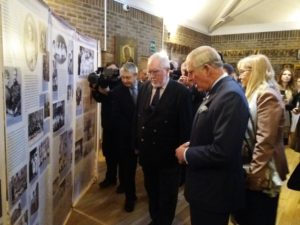by Anastasia Parkhomchik
Tsar Nicholas II formally abdicated from the throne on 3 March 1917 and six months later he was exiled to Tobolsk, Russia, together with his family, attendants and servants. The royal family lived in Tobolsk until the end of April 1918. Afterwards, they were dispatched to Ekaterinburg, where its members met their martyr’s deaths on 17 July 1918.
That year — the last in the lives of the Holy Royal Passion-Bearers – Easter fell on 5 May, and the Great Lent did not begin until 18 March. The family spent the Lenten period together in Tobolsk, but they were separated for the Easter Sunday.
The Emperor’s diary has survived to this day, with records from each day of the Great Lent of 1918. They are mostly short and factual. Yet despite the brevity, they open a window on the hardships of the exile for the Royal Family and their life there. They also provide wonderful examples of great courage, strong hope and solid faith in the Divine Will, which fill every line of the narrative.
We present to your attention some of the most striking fragments of the Emperor’s diary about the readings, works and worship in his family in those difficult times.
Monday 18 March*
It is the first day of the Great Lent Alix and the daughters began choir practice at 9.30 with the deacon. Hours start in 30 minutes. The Empress and the Grand Duchesses sang in both services, as it is impossible for the regular singers to sing four times in a day. The weather was marvellous. We spent a long time outdoors cutting wood. The servants and attendants took leave in the afternoon, and we spent the evening in the family circle.
In Tobolsk, the Royal Family resided in the house of the former governor. Placed under house arrest, they could not go to church regularly, so they worshipped nearly all of the time in their domestic chapel.
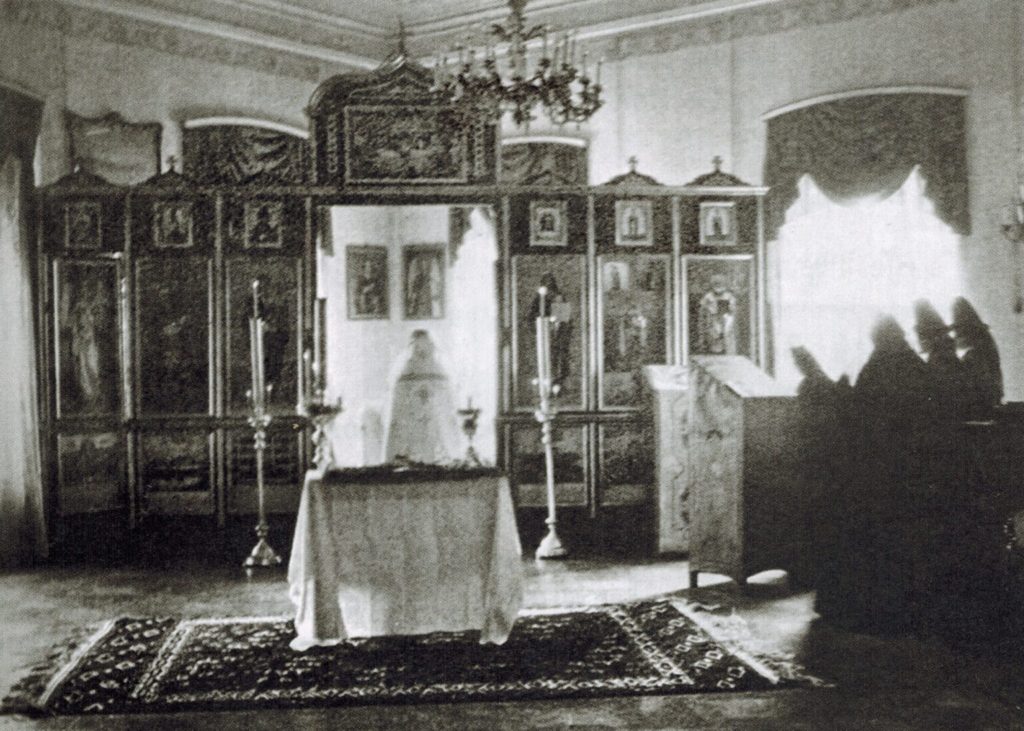
Wednesday 20 March
Finally, we were able to go to church to attend the Liturgy of Presanctified Gifts. Father Vladimir Khlynov was the celebrant. The regular choir sang the chants that we all knew and loved.
Friday 22 March
Today is the anniversary of my arrival in Tsarskoye Selo and my arrest in the Alexandrovsky Palace. Despite myself, I remember again this past tragic year. What lies ahead of all of us? All is in God’s hands. On Him, we lay all out hopes. We went for the day hours at eight. We spent the rest of the day as usual. We had dinner at seven, then the went for the vespers, and afterwards the confession at church for the children, the attendants and ourselves.
Saturday 23 March
We went for the day hours at 7.30 and took the Holy Communion as a family. The choir was excellent. We returned at nine. We took a walk after tea. The weather was spring-like, and snow was melting in the shadows. We worked a lot after lunch. At nine, we stood for a vigil in our domestic chapel. We were tired and wanted to sleep.
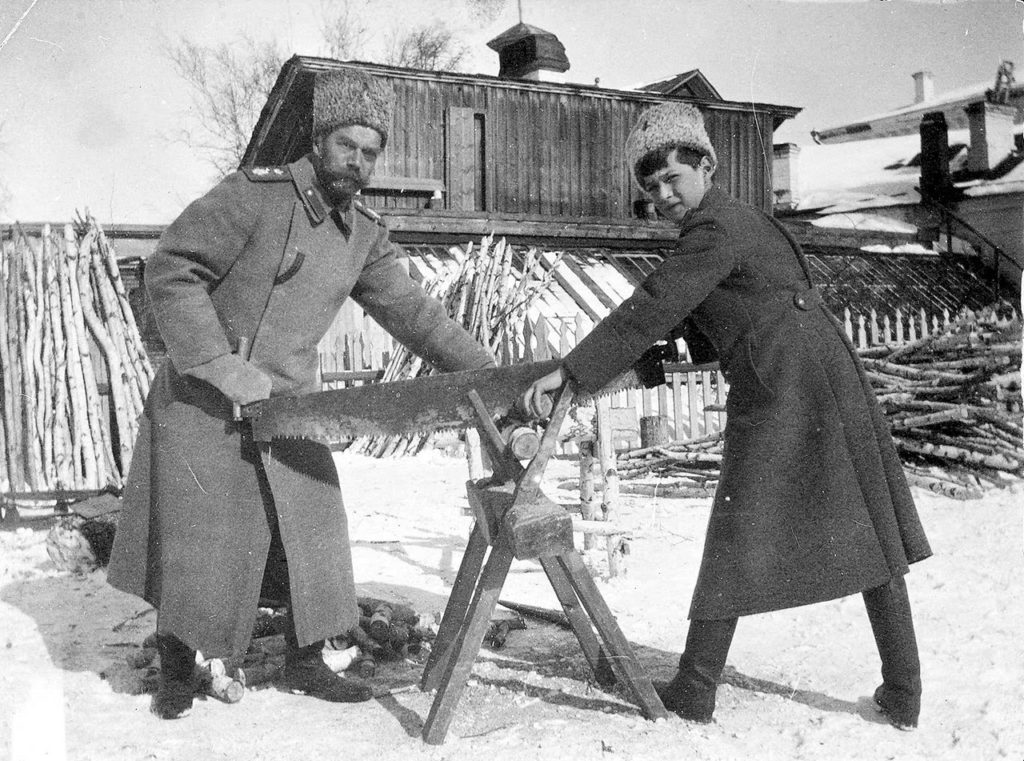
Sunday 24 March
It was a fine Spring day. We were well-rested as we had finally caught up on our sleep for the previous two days. We stood at the short day service at 11.30. I started to re-read the Bible from the beginning.
Tuesday 26 March
The day is grey and gloomy, but the snow is still melting. As it is not possible to read the Bible all the time, I also started reading K. Green’s Short history of the English people. – In the evening, we returned to Turgenev. I am now reading his Spring Waters. It has been exactly seven months today since we moved to this house.
Saturday 30 March
The storm abated. A cold and clear day began. With difficulty, I cleaned the path in the garden from the snow for our walks. I sawed the wood, and the daughters cut it with an axe. At 8.45, we stood for the vigil.
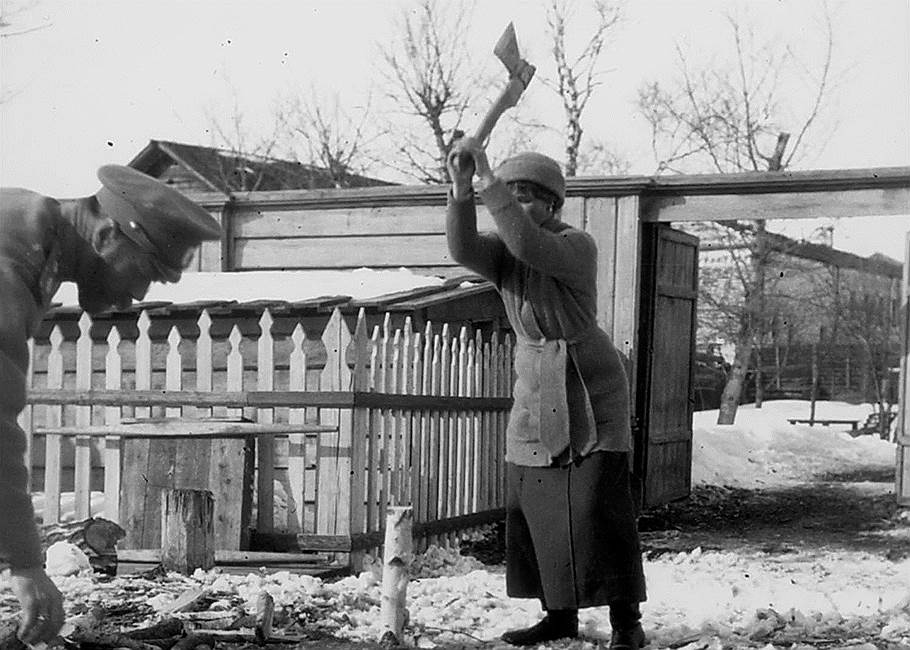
For the most part, the entries in the emperor’s diary described the weather and talked about the health of his son Alexey, who was in poor health at that time. The Emperor also writes about his daily physical work — making firewood, or shovelling the snow — in which his children often helped him. His frequent attendance at worship services is also a common topic.
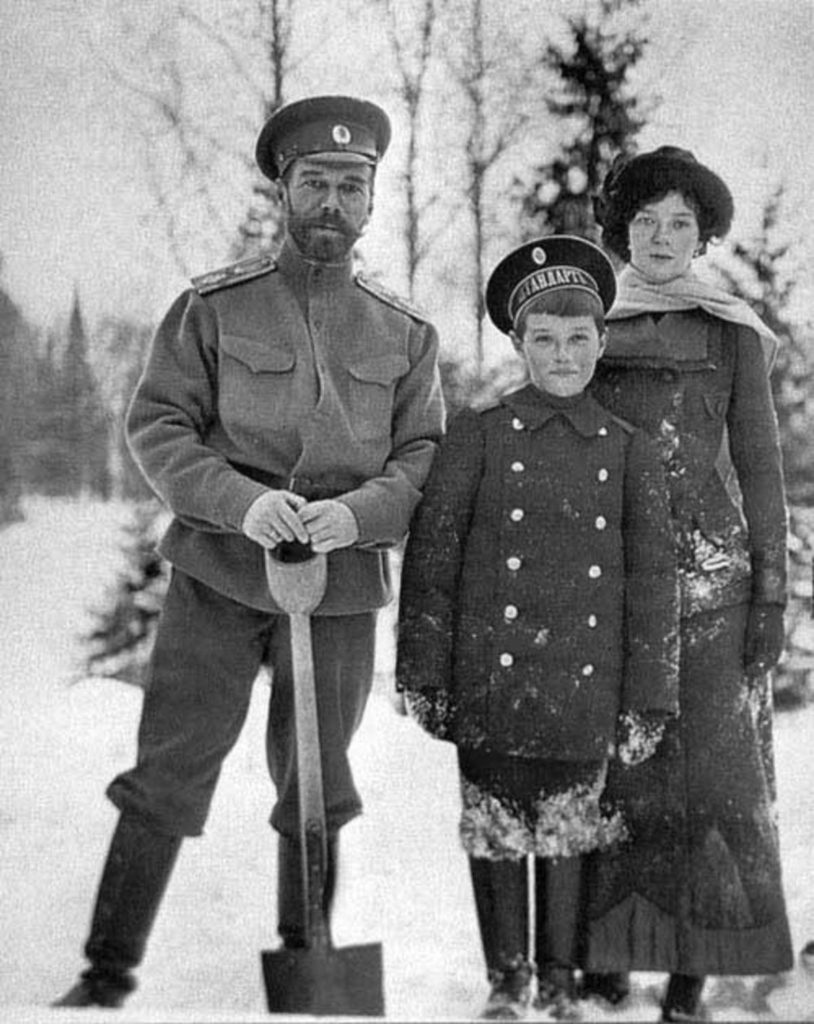
Sunday 31 March
We celebrated the short day service at 11.30. Then we went outside for the greater part of the day. It was already quite warm in the sun. After lunch, I usually play bezique**, a card game, and read aloud.
Saturday 6 April
I sawed the wood for a long time in the morning. After tea, I read in the sunset until seven. The vigil began at 9.45 with the adoration of the Cross.
Sunday 7 April. The Feast of the Annunciation
It was the great feast of the Annunciation, but we could not get to church. We got up early to meet the priest at home. We celebrated the short day service without a choir. Alix and the daughters sang without preparation.
Friday 19 April
I finished Green’s history of England and started the collection of novels by Vsevolod Solovyev. Went for the vigil at nine. The bases sang beautifully.
Sunday 21 April
Today is the twenty-fourth anniversary of our engagement. We attended the short day service at 11.30. When it was over, Kobylinsky showed me a telegram from Moscow that confirmed the order of the Platoon Committee to strip me and Alexey of the shoulder boards. So I decided not to wear them only at home, but not for our walks. How detestable! I worked in the garden for two hours. In the evening, we began to read aloud the Magi by Vsevolod Solovyev.
The episode with the shoulder boards was one of many examples of the Tzar’s disrespectful and undignified treatment at the hands of the Bolsheviks. Almost invariably, Nicholas II took all insults with great patience and humility.
Monday 22 April
We heard the news about the arrival of the extraordinary commissary Yakovlev. He is staying at Kornilov’s house. The children are expecting him to come and do a search tonight, so they have burned all their letters, and Maria and Anastasia even their diaries. The weather is revolting. It is sleeting, and cold.
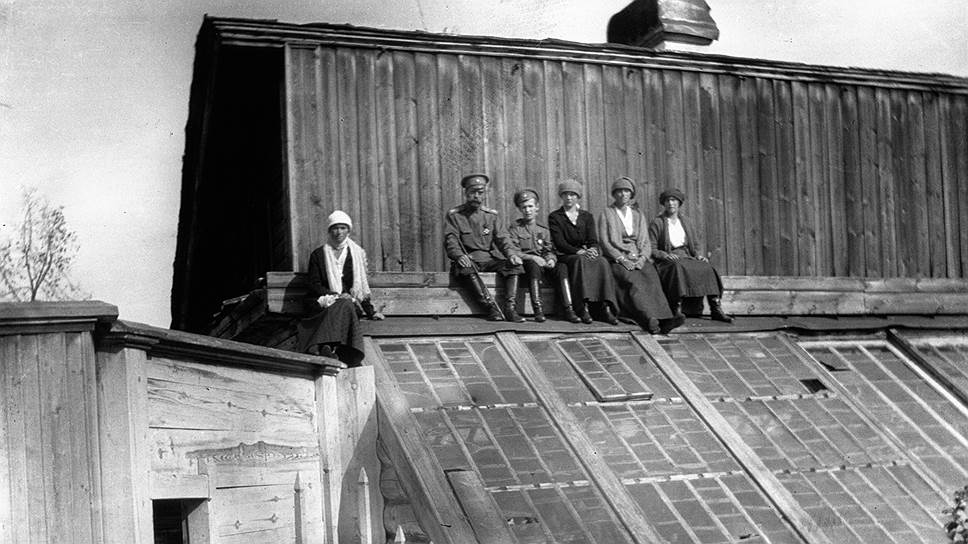
On 25 April Tsar Nicholas was informed about the orders to dispatch him to a different location that could not be disclosed. His wife Alexandra Fedorovna and daughter Maria volunteered to travel with him, while the grand duchesses chose to remain in Tobolsk. They travelled to Ekaterinburg on a horse-driven cart, and the journey took a long three days, from 26 to 29 April. The royal family celebrated Lazarus’ Saturday and Christ’s entry to Jerusalem on the road. They finally arrived in Ekaterinburg on Tuesday 30 April and stayed at Ipatyev’s House.
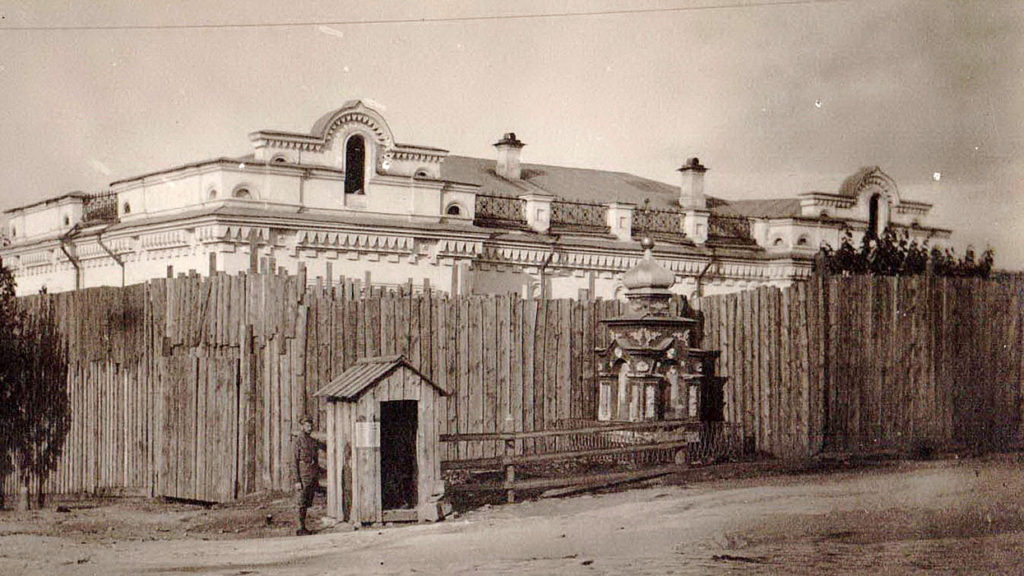
1 May — The Great Wednesday
We slept very well And had tea at nine. Alix chose to stay in bed to recover from the journey. We could hear the music from the May Day celebrations. They were playing some marches. They did let us walk in the garden. The house had a magnificent bathroom. I wanted to take a bath, but the water supply was not running, and they could not bring any water in a tank. It was sad – it hurt my sense of cleanliness. The weather was superb. The sun was shining, it was plus 15 in the shade, and I was breathing in the fresh air through the open window.
2 May — Great Thursday
In the morning, I read aloud to Alix “La Sagesse et la Destinee” by Maeterlinck. Then I continued with my bible readings. Afterwards, they gave us permission to walk in the garden for one hour, and we all took advantage of it, except Alix. It was great to have some fresh air. As we heard the ringing of the bells, we were saddened by the fact that it was passion week, but we could not attend its wonderful services. We also could not observe the fast, which was even worse. I finally had the chance to have a bath before tea. We had dinner at nine. In the evening, all of us, the occupants of the house’s four rooms, gathered in the living room where Doctor Botkin and I took turns reading aloud the twelve Gospels. Then we retired to our beds.
While in Ekaterinburg, the royal prisoners had to make do with the meagre diets that they were offered, and could not fast. They also could not engage in any physical activity, as they were rarely allowed to go outside. They remembered their lives in Tobolsk as relatively peaceful and measured. Their stay in Ekaterinburg looked much more like imprisonment.
3 May — Great Friday
Today, as on all the other days, I read aloud in my bedroom the daily bible readings in the morning and evening… – I kept reading the Gospel all morning, then wrote short letters to my daughters from Alix and myself and drew the plan of this house. At the request of Doctor Botkin, they allowed us a visit from a priest and deacon. They came at eight. They served the matins quickly and effectively. It was a great comfort to pray and hear, despite the circumstances, “The Lord has risen from the dead”.
5 May — Resurrection Sunday
In the evening and for a great part of the night, we heard the cracking of the fireworks from different parts of the town. It was a cold and gloomy day, about plus 3. We exchanged a triple kiss with one another over tea, and had cake and painted eggs. We could not get hold of any Pascha cake.
As we read the diary entries of Nicholas II from his last Great Lent, we can appreciate the hardships and sorrows that befell him and his family. Yet the emperor was sorrowful over his inability to be at church more and to adhere to the fast. The example of the Holy Royal Martyrs encourages us to look at our lives, and the ongoing Great lent from a different angle and to recognise the multiple and varied opportunities to serve God at this time. The great feat of the Holy Royal Passion-Bearers was not in Fasting, but in accepting martyrdom for their faith; but they remained faithful in ‘a very little’ every step of their way.
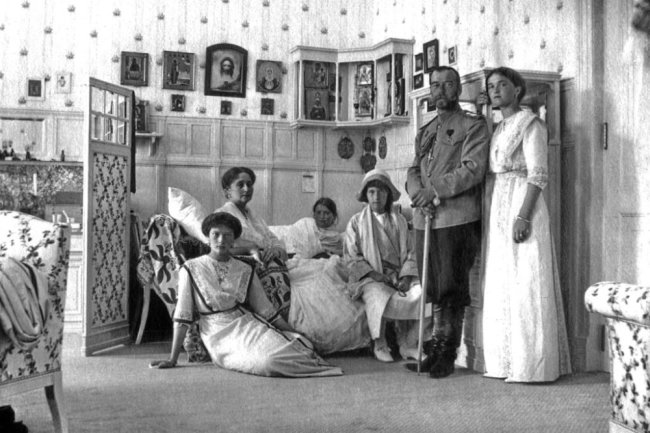
*All dates are according to the New Style calendar.
**Bezique – an intellectual card game.
This article is reproduced with permission from https://blog.obitel-minsk.com/2021/03/last-great-lent-of-the-russian-royal-family-as-reflected-in-the-diary-of-nicholas-ii.html
